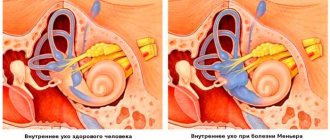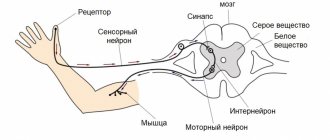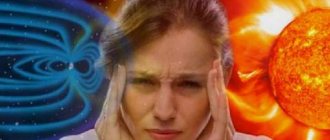- home
- News
- Why do you feel dizzy when you quit smoking?
After quitting smoking, you may often feel dizzy. This is one of the withdrawal symptoms. It begins just a few hours after the last cigarette smoked and lasts up to three weeks. This is a normal reaction associated with a deficiency of nicotine, which was previously involved in regulating the activity of the central nervous and autonomic nervous system and suddenly stopped supplying.
Why does dizziness occur?
In people who smoke, nicotine constricts arterial vessels, keeping them toned. Its effect is due to its similarity to acetylcholine, an organic compound involved in the regulation of brain function. It is necessary to transmit nerve impulses to narrow the vascular walls. When a person smokes, the production of acetylcholine decreases because it is replaced by nicotine molecules (nicotine and acetylcholine molecules have similar chemical structures). After quitting smoking, a period begins when acetylcholine is not yet produced in sufficient quantities, but is no longer replaced by nicotine. The tone of the vascular walls becomes reduced, the pressure decreases, and the person feels this as weakness and dizziness. In hypotensive patients, the head may feel especially dizzy, vomiting, nausea, and deterioration in concentration are possible.
When smoking, the blood contains less oxygen - it is partially replaced by carbon dioxide. In smokers, this provokes oxygen starvation, to which the body gradually adapts. When a person stops smoking, the reverse process begins. Blood oxygen saturation increases sharply, and this can make you feel worse, causing dizziness and headaches. Such symptoms disappear within a few days as the body adapts.
Another possible reason is a change in the functioning of the central nervous system. Nicotine has a short-term stimulating effect on the brain. If a person abstains from his habitual smoking of tobacco, nicotine ceases to have its stimulating effect. This provokes irritability, aggression, and apathy. Sleep disturbances and fatigue often occur. Dizziness appears against the background of a general deterioration in health.
How does a person feel when quitting smoking?
When a dependent person begins to smoke regularly, a physical craving for nicotine is added to the psychological dependence.
During the period of quitting smoking, the patient experiences a strong desire to smoke, psychological discomfort is expressed in anxiety, irritability, and excessive psychological stress. The addict becomes depressed, he can be aggressive and unrestrained, it is difficult for him to concentrate on anything because thoughts about smoking constantly creep into his head.
Withdrawal syndrome when quitting smoking is an unpleasant condition from a psychological point of view, however, this is not all the tests that a smoker faces.
How quickly will withdrawal go away?
It is believed that in smokers it passes quickly and in a mild form. The malaise is mild, and the head is dizzy or hurts only from time to time, not constantly. Dizziness will appear less frequently and last less each day. Symptoms of physical withdrawal completely disappear within 2-3 weeks, usually much faster, in just a few days. The exact period depends on the state of health, smoking experience, the number of cigarettes smoked per day, lifestyle, and how treatment for tobacco addiction is organized.
Treatment with drugs
When treating nicotine addiction, specialists quite often turn to medicinal treatment methods. It should be noted that in essence these methods are coding for smoking.
By themselves, they cannot cure addiction, but they give the patient the opportunity to live without cigarettes and appreciate the benefits of a healthy lifestyle. Secondly, drug blocking of addiction in combination with psychotherapeutic treatment methods can cure the disease completely. In addition, medications alleviate or relieve withdrawal symptoms when quitting smoking, and a person goes through the period of adaptation to life without cigarettes more easily.
What medications are used to relieve nicotine addiction? They can be divided into two types of drugs. Some are replacement therapy and simulate the flow of nicotine into the body. The most common of these products is the anti-nicotine patch.
The person who uses the patch does not experience withdrawal symptoms. If the remedy is chosen correctly, then the body is easy to deceive; the body does not even suspect that you no longer smoke. What does it mean to choose correctly? It is important to consider how strong cigarettes you smoke, in what quantity and how often. In other words, the patch should imitate your smoking regimen as accurately as possible.
It is best to select an anti-nicotine patch with the help of a doctor, because this very convenient and effective remedy may not help you only because of the wrong dosage. In addition to the patch, there are also sprays, chewing gums, and mouth rinses that have a similar effect. Their disadvantage is that you can violate the regimen and forget to use them, which will negate the effect of the treatment. In this regard, the patch is the most convenient solution.
There are drugs that block receptors in the brain, those that respond to nicotine entering the body. Thus, the smoker does not experience any sensations from the smoking process, which makes it meaningless.
A fairly large group of drugs works to reduce cravings for tobacco. In fact, these medications relieve the unpleasant psychological manifestations of withdrawal symptoms, which will allow the patient to control their behavior.
Please note that many drugs have side effects. In addition, for the correct choice of medication, it is necessary to take into account the specific medical history of the disease. That is why the choice of treatment for smoking should be entrusted to a professional so that it brings benefit to your health and not additional harm.
How to reduce dizziness?
This symptom cannot be ignored. It can be quite dangerous, and it is important to monitor your well-being while withdrawal symptoms pass. Medical doctors recommend:
- if you start to feel dizzy, it is better to sit down for a while, lie down, and rest until your health returns to normal;
- with low blood pressure, to increase it, you need to drink black tea or coffee with sugar;
- It is better to avoid heavy physical activity, severe stress, and anxiety. At the same time, playing sports and habitual exercise are useful and help improve both mood and well-being;
- it is important to maintain a sleep schedule, get enough sleep, get enough exercise, and find activities that will help distract you from thoughts about smoking;
- nutrition must be correct. Vegetables, fruits, fish, seafood are healthy. You can eat more chocolate. Meals should be regular (hunger can cause dizziness);
- contrast shower in the morning. Restores the mechanisms of blood pressure regulation;
- walk more in the fresh air. Fast walking and light jogging are useful;
- It is undesirable to provoke dizziness: climb to great heights, watch 3D videos, ride attractions.
If you feel very dizzy and often, have problems with concentration, headaches, you should temporarily stop driving or work with complex or potentially dangerous equipment. If such symptoms persist for more than two to three weeks, you should additionally consult with a narcologist. To make withdrawal easier and faster, it is better to seek the help of a doctor in treating nicotine addiction. Narcologists use maintenance therapy, which helps to eliminate the symptoms of withdrawal syndrome as much as possible.
Treatment of nicotine withdrawal syndrome
We have described a number of physical and psychological symptoms that accompany smoking cessation. This is how the body adjusts to a normal mode of operation without the use of nicotine. This is a lot of stress for a person, for his body and psyche. Therefore, few people can go through the pangs of nicotine withdrawal on their own. The best thing to do in this case is to consult a doctor.
After all, it can be a shame when a patient, having endured the most painful first days or weeks of nicotine withdrawal, then smokes a cigarette again. So he dooms himself to walking in circles.
Modern narcology offers many ways to combat nicotine addiction, varied and effective. Why not make it easier for yourself to quit smoking?
Main causes of dizziness
Dizziness begins from cigarettes due to lack of oxygen in the blood. The entry of nicotine into the body immediately causes vascular spasms, which leads to tachycardia and stroke. Obesity, lack of sleep, lack of exercise, and drinking alcohol are also causes of dizziness.
Negative effects of nicotine
Nicotine is a narcotic substance that causes addiction in the body. If you do not abuse smoking, then nicotine is not fatal, but smoking 100 cigarettes or 20 cigars can cause death.
Nicotine affects the respiratory system, but over time, a smoker may begin to breathe heavily and wheeze when exhaling. Blood pressure rises and headaches begin.
Vasospasm
When present in the blood, nicotine dilates the blood vessels, and then they sharply narrow - this is called spasms. Symptoms:
- pain in the temples, back of the head, frontal part;
- pressure surges;
- be sick;
- noise in ears;
- performance decreases;
- memory deteriorates;
- the smell is perceived too strongly;
- I have a stomachache.
Oxygen deficiency in brain tissue
Lack of oxygen in tissues is hypoxia. The acute form is fatal. It develops rapidly: a person feels a strong gag reflex.
The largest number of oxygen cells die during smoking. The breathing rate increases, and spare alveoli work in the lungs to absorb more oxygen.
Diseases of the ENT organs
Nicotine, carbon monoxide, strong acids and hydrogen sulfide, entering the body, are absorbed into the mucous membrane. The oral cavity, stomach, nose, pharynx, larynx, trachea and throat take the first blow. To avoid these negative consequences, you need to quit smoking. As a result of cigarettes, the smoker begins to complain of irritability, a cough that does not go away, a sore throat, and after cigarettes the sense of balance is dulled.
Hyperventilation
This is rapid breathing that is caused by rapid smoking. At the same time, the level of carbon dioxide is several times less than that of a healthy person. Blood volume decreases, arteries narrow.
You should contact your doctor if you feel:
- rapid breathing;
- It's difficult to breathe;
- something is pressing on you;
- chest pain;
- anxiety;
- hot temper;
- vision deteriorates;
- cramps appear in the limbs.
Nervous system disorder
A person perceives nicotine as a way to relax, but the nervous system perceives it as poison. She is responsible for the work of all organs. When cells are intoxicated, an inflammatory process occurs. Pronounced nervous disorders and short temper are observed when quitting smoking.
There are different causes of nerve center disorders - chronic diseases, hereditary and traumatic injuries. Suppression of the body occurs in the process of quitting tobacco. We have heard the complaint more than once: “When I smoke and get dizzy, I start to lose consciousness.” These are the consequences of a disorder of the cardiovascular system.
Problems with the cardiovascular system
Symptoms of cardiovascular system disorders:
- sweating;
- vomit;
- an allergy to cigarette smoke occurs;
- swelling;
- cough;
- weakness;
- pallor.
Effect on the digestive tract
When smoking, cigarette smoke enters the stomach. The body perceives toxins as poison and begins to push it back. With regular smoking, ulcers and gastritis of various types develop.
There may be diarrhea or slow metabolism. When nicotine enters the stomach, hydrochloric acids, pepsin, and enzymes are produced, which has a bad effect on the functioning of the body.
Combination with alcoholic drinks
In this case, the liver is stressed, neurons are damaged, and the gastrointestinal tract is one of the first to be affected by the double blow to health. Under the influence of alcohol, a person can smoke 2 or 3 times more than on an ordinary day.
Alcohol and tobacco affect everyone individually - it all depends on the person’s condition, his mood, and the amount of alcohol he drinks. With large consumption, circulatory problems in the genital organs begin.
Wrong diet
If you love hookah, and your friend is a cigar, you need to take care of your health:
- Drink plenty of liquid a day - at least 2 liters, preferably without gas.
- After exercise, have a hearty breakfast in the morning.
- Eat healthy foods.
- Rest more and breathe street air.
- There is no need to overeat, eat emotions and stress, and do not eat 2 hours before bedtime.
After hookah, your head may still hurt, but these recommendations will help you quickly cleanse your body.
Low blood pressure
Risks of low blood pressure:
- memory and brain endurance to stress decreases;
- prostration;
- headache;
- drowsiness;
- sudden loss of consciousness.
Having these signs, you should stop using nicotine substances. After giving up cigarettes or alcohol, the headache begins to hurt, the arteries get used to narrowing and the recovery process takes more than a month.
Possible consequences
Constant nausea is a very unpleasant condition; it can cause not only psychological discomfort, but also cause serious health problems:
Increased fatigue and decreased performance - intoxication of the body, manifested by nausea, has an extremely negative effect on the body as a whole and on the nervous system in particular; if this condition continues for more than 3-4 days, the patient risks getting a nervous disorder or a problem with the digestive organs;
Refusal to eat and sudden weight loss - discomfort in the stomach can cause an aversion to food and rapid weight loss, which in turn is very harmful to the body;
Dehydration – lack of fluid slows down the cleansing of the body and increases the impact of toxins on the brain;
Return to smoking - in an attempt to “calm down” their stomach, some former smokers may pick up a cigarette again, ignoring the wrongness of such behavior.
How to alleviate your condition
The only correct solution if your health deteriorates after smoking is to completely abandon this harmful habit. Of course, this should be done under the supervision of a doctor and subject to measures aimed at supporting the body. The selection of methods for quitting smoking is carried out by a narcologist, taking into account the patient’s age and build, his lifestyle, the presence of serious diseases, psycho-emotional state, smoking experience and the number of cigarettes smoked per day.
Describe your problem to us, or share your life experience in treating the disease, or ask for advice! Tell us about yourself right here on the site. Your problem will not go unnoticed, and your experience will help someone! Write >>
Quitting smoking at first can provoke the appearance of even more severe dizziness. This happens for several reasons. So, the body begins to require a dose of nicotine, which it is accustomed to receiving daily. In return, the blood is saturated with oxygen, a deficiency of which brain cells have experienced for a long time.
With well-chosen rehabilitation, after a certain time, the unpleasant symptoms disappear, and the patient’s well-being improves significantly. Dizziness and shortness of breath disappear, cough and irritability go away, appetite and sleep normalize.
You can alleviate the condition of dizziness after smoking and at the time of quitting by using basic techniques and tips:
- normalize sleep by devoting at least 8 hours to it at night;
- limit yourself from stress;
- do breathing exercises daily, exercises for which will be selected by the attending doctor;
- spend more time in the fresh air;
- drink green tea for breakfast every day;
- take a contrast shower daily, provided there are no contraindications;
- as prescribed by the doctor, take courses of medications - sedatives and blood pressure-lowering drugs, as well as drugs that normalize the functioning of the nervous, vascular and respiratory systems.
Feel free to ask your questions right here on the website. Write >>
The disappearance of dizziness and feelings of weakness caused by smoking is possible only after giving up this bad habit. Otherwise, unpleasant symptoms will become more pronounced as the smoking experience increases.








